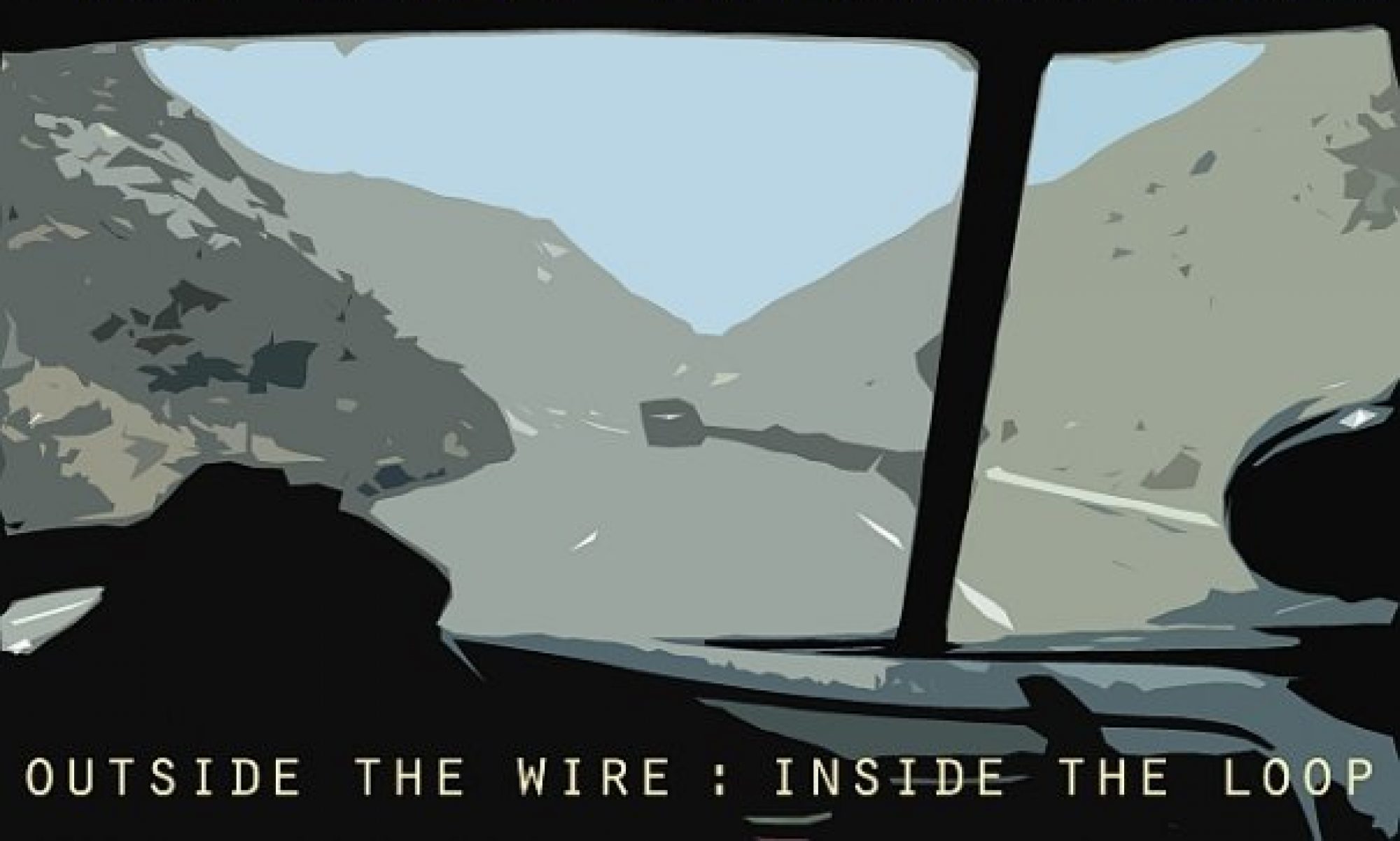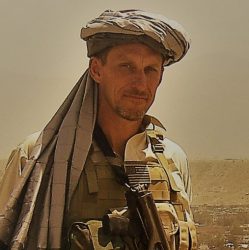The Secret Gate is one of the best books of the year which is easily confirmed by noting its absence on any of the New York Times bestseller lists. I heard about this book from my father who was told about it by the wife of a friend, and she heard about it from one her grandchildren. How many word of mouth referrals do you think the current #1 in the NYT combined Print and E Book nonfiction list, Oath and Honor by Liz Cheney has generated this year? The question answers itself so let’s talk about the next book you’ll want to pick up knowing you won’t be able to put it down.
The Secret Gate is about the rescue, at the last possible minute, of an Afghan woman and her son by a young American diplomat using a secret gate that the CIA opened to bring in their Afghans. I’ve worked at both the Baghdad and Kabul American embassies which allowed me to take the measure of young diplomats like Sam Aronson the hero in this story, and as a rule, I don’t like them. I found indecisive paralysis of Homeira Qaderi, a celebrated author, academic, and woman rights activist distasteful. Her inability to make sound decisions in the face of existential danger is a character flaw in my book but her resolute determination to ignore reality in the face of intense international pressure from all the right people does contribute to the tension in the story.
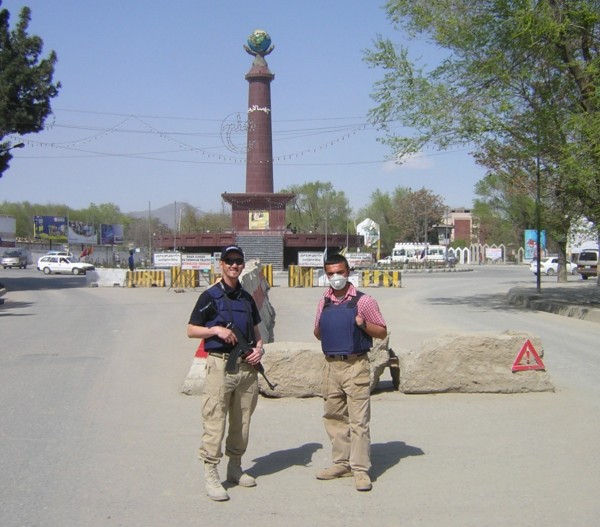
And then there was the secret gate which I understand (this is not in the book) was guarded by Unit 02, the Nangarhar province CIA counter-terrorism pursuit team who arrested me once and were dicks about it. Every character in this book, from the “calm professional” ambassador to the lethargic DSS agents would normally irritate the shit out of me but I couldn’t put the book down and was sorry to reach the end. This story, intentional or not, captured the consequences when the media/government/academic approved narrative collides with cold, hard reality.
The tale opens on August 2nd, 2021, with a chapter about what Homeira and family were up to that day followed by a chapter about Sam’s day which started out rough because he was hung over. As the alternating chapters progress we learn more about the Qaderi family (Homeira’s father is awesome) and we learn about Sam. He, like most diplomats, comes from a wealthy family, and he traveled a bit in his youth which exposed him to the diplomatic service because his Dad worked for the NBA and diplomats love free NBA tickets. But there is an anomaly in young Sam’s background. At the age of 15 he got the EMT bug and by the end of High School he was a member of two different volunteer ambulance corps, racing a ½ mile to the closest station on foot from his High School when a call came in.
It is my lived experience that the best children of our wealthy elites will earn an EMT license and find their way into volunteer rescue squad work. I base this on my time with the Bethesda Chevy Chase Rescue Squad where a healthy percentage of the volunteers came from wealthy, and in some cases, powerful DC families. I started to like Sam when I read about his unique background.
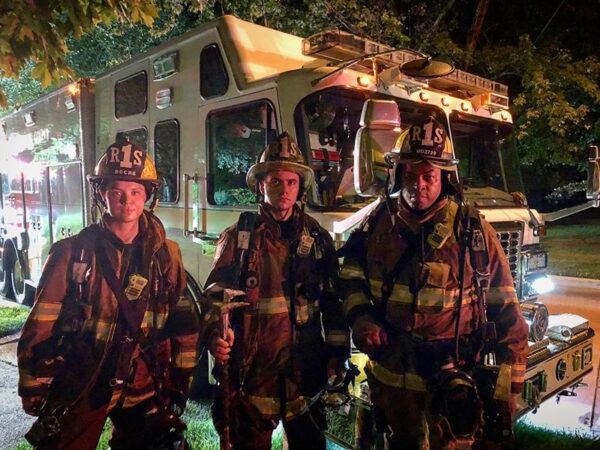
The backstory covers Sam’s progression from Diplomatic Security Specialist to junior diplomat and way too much of that tale concerns COVID 19. We hear about Sam’s efforts to “sneak in” vaccines for the embassy staff in some African dump. It appears both Sam and the author, Mitchell Zuckoff, think it normal for senior bureaucrats to displace to their summer coastal bungalows to isolate after of positive COVID test. No doubt drawing daily per diem too and this is in 2021 long after it was obvious that COVID was little more than a bad cold bug and the vaccines worthless. But by the time Sam hits Kabul all the concerns about COVID became OBE (overcome by events in military parlance) and we (thankfully) never hear of it again.
Sam’s first decision of the crisis is to allow a woman who threw her child over the wall to be processed for a flight out. That was explicitly against that days iteration of evacuation guidance which Sam doesn’t know because, to be honest, he barley even knows where Afghanistan is on a map. But he catches on quick and within hours he’s ejecting desperate Afghans by the dozens.
The constant pressure of making literal life and death decisions about Afghans is hard on Sam as it well should be given his total ignorance of Afghanistan and her people. Sam starts to chain smoke, bumming cigarettes from interpreters (Terps) or the troops working near him, a move so typical it is a cliché. As the story progresses Sam finds his own Terp named Asad who despite getting his parents and siblings into the evacuation que, will not leave Kabul without his sister and her family. He intends to help where he can until talking his sister into another attempt to get into the airport.
On the 25th of August, with just four days left in the evacuation Sam and Asad find themselves assigned to the “secret gate” where the CIA is bringing in busloads of their people who they take directly to the head of the line inside the airport. While Sam is bumming smokes from the CIA contractors manning the gate Asad gets the idea of bringing his sister and her family in from the gas station across the street from the secret entrance to the secret gate. Sam asks one of the CIA “shooters” for a little help, and he, surprisingly, is all in. He directs the pricks from Unit 02 to lay down some serious covering fire to distract the crowd while Asad sprints to the gas station, finds his sister and her family and they run back across the street through a gap in the wire to safety. It works like a charm and Sam then uses his junior diplomat status to walk the sister and her family directly into the airport terminal. Because (again based on my lived experience) Afghan interpreters are among the most awesome, loyal, brave, and trustworthy of temporary friends Asad stays on as his family flies out to help Sam get more deserving Afghans evacuated.
The word about Sam’s secret gate gets out and soon he is inundated with the names of Afghans connected to former friends and colleagues from around the world which he writes on his forearm with a sharpie as he and Asad start bringing the faithful into the wire. On the last day the gate will remain open Sam, as almost an afterthought, calls Homeira Qaderi and tells her that he can get her and her son out if she can get to the Panjshir Pumps gas station in 30 minutes. He stressed they can’t bring any luggage because of the recent suicide bombing, or any other family members. Homeira brings her son and her older brother along with a bag containing her laptop and a change of clothes. That was such a typical Afghan move that it forced a smile and I started to like Ms. Homeira who was making me miss hang around Afghans.
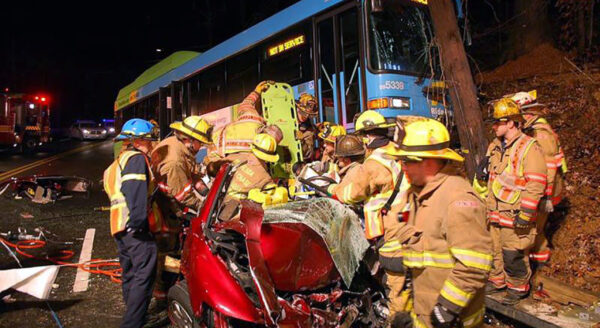
There’s lots more to the story and tons of tension and danger for the uninitiated, for the rest of us outgoing rifle fire and flash bangs are not considered that risky but what do I know? My perception of risk may be a bit dated. Sam Aronson, who directly violated State Department rules and regulations to get over a dozen under vetted Afghans evacuated comes home a hero which is exactly what he promised his wife he would not do. His wife who is also a junior diplomat cuts him some slack, but he his colleagues at State Department don’t because it is not an organization that tolerates masculine heroic virtues well. Sam quickly exits the State Department for greener pastures.
The problem with great stories like this is they make it easy to forget what we should never forget and that is the self-inflicted wound of our humiliating retreat from Afghanistan. On an early July 2021 edition of All Marine Radio, I offered to following expert analysis: “You cannot conduct a NEO from the airport in Kabul because there will be 200,000 Afghan civilians flooding the field in a panic to get out.” This was not dramatic or original insight, but common sense, any child living in Kabul could have told you that which was the point – our best and brightest knew nothing about what is happening outside the wire and that ignorance fed risk aversion and magical thinking about basic things like the difference between outgoing and incoming rifle fire.
Yet even when we flood Kabul with young diplomats trained to treat the official government narrative as legitimate reality at least one of them will recognize that he has arrived in Absurdistan and instinctively ignore what he is told in order do the right thing. For that Sam Aronson deserves a solid Bravo Zulu. And it turned out that the performance of Unit 02 at the secret gate was most honorable and they too deserve to be recognized for filling the breach at a desperate time with professional poise and determination. But the biggest thanks for this treat of a tale goes to the author Mitchell Zuckoff for finding a positive story of human courage and sacrifice buried inside our ignoble retreat from Central Asia.
